- Home
- Penny Jordan
Past Loving
Past Loving Read online
Past Loving
Penny Jordan
CONTENTS
CHAPTER ONE
CHAPTER TWO
CHAPTER THREE
CHAPTER FOUR
CHAPTER FIVE
CHAPTER SIX
CHAPTER SEVEN
CHAPTER EIGHT
CHAPTER NINE
CHAPTER TEN
CHAPTER ONE
‘AND then he said that he had to work late again; that’s the third time in a fortnight. I know how much of his time your business is taking up now that it’s expanding so much, Holly, and with all this media attention you’ve been getting, but honestly do I look like a fool? Working late...not on your accounts, I’ll bet, and that new secretary of his had the gall to tell me that he was in a meeting when I rang him yesterday.’
Smoothing the neat straight skirt of her primrose yellow suit, Holly let Patsy’s diatribe wash over her; not because she wasn’t interested or didn’t care about her old friend’s problems—after all, instead of being here listening to Patsy complaining about Gerald, she had intended to spend her precious few hours helping Rory put in the tulips and forget-me-nots that were going to make such a lavish display of blue and yellow in the spring.
When Patsy had telephoned her, announcing that she had to see her because there was something she had to talk to her about, she had immediately assumed from the tragic tone of her friend’s voice that something catastrophic had occurred.
Poor Gerald, the last thing he was likely to do was to be unfaithful to his volatile red-haired wife; Patsy was the one who had always had a rather elastic view of her marriage vows.
She tried to concentrate on what Patsy was saying and discovered that her friend had ceased complaining about Gerald’s new secretary and was now complaining about the amount of work her own business was causing Gerald.
‘I know Gerald himself would never mention it, but it isn’t as though he’s actually on your board or anything, is it? I mean, I know he’s your accountant, but he does have other clients.’
Holly suppressed a grim smile. She ought to be used by now to the fact that some of her friends were inclined to be either envious or resentful of her unexpected commercial success. Many of them, like Patsy, also seemed to have a very inflated idea of her imagined new-found wealth. It was true that her company had become startlingly profitable, but the majority of those profits were being ploughed back into the business, the one luxury she had allowed herself being the purchase of the long low-built Tudor farmhouse several miles outside town.
Even as a girl she had loved Haddon’s Farm, not quite as much as she had loved the Hall perhaps, but then what did one single woman want with a home that boasted over twenty bedrooms, a ballroom, and a drawing-room large enough to accommodate the entire downstairs of her own home, plus a library, two sitting-rooms, and a whole village of small dark and dank pantries and kitchens, even if she had been able to afford it?
No, the farm was much more her style...much more in keeping with the way she wanted to live. It had roots that went back almost as far as the village itself, pre-dating the Hall by almost a century, and best of all it had a wonderful range of outbuildings, even if they were half falling down and even if the gardens that surrounded the house had resembled a wilderness when she moved in.
All the more scope for her to implement her own ideas and desires, she had told Gerald and Paul mischievously when they had complained that she must be mad to take on such a time-consuming task, when by rights every bit of her time ought to be devoted to the business.
The business... The slim hand smoothing the yellow silk of her skirt went still.
Even now she found it hard sometimes to come to terms with the way the small business she had started at home in her father’s garden shed had mushroomed into the high-profile success it was today.
Fresh from university, newly qualified as a chemist, she had found herself uneasy and unhappy with the modern emphasis on chemically produced beauty products. It had been the gift of a dog-eared Housekeeper’s Receipt Book-cum-Herbal dating from the seventeenth century which had set her off along the alternative avenue of exploring the simpler, kinder methods of producing beauty products from natural sources which had eventually led to the successful business she had today. Things she had made initially just for herself or to test out the recipes in her herbal, their reputation initially spreading by word of mouth, loyally encouraged by Paul, her brother, who had entrepreneurially taken charge of the marketing side of her small business. She vividly remembered their début into the world of country fairs and market stalls. She had enjoyed those days, enjoyed that life, when she had been free to dress in a pair of tatty old jeans and a sweatshirt and to leave her hair free from the time-consuming restrictions of style and image.
Now things were different, especially over the last couple of years when she had been named ‘New Businesswoman of the Year’, and had somehow or other been swept up in a public-relations exercise which had now left her feeling uncomfortably at odds with herself, unfamiliar and sometimes very out of charity with the woman she saw in the mirror, a woman who had swapped her jeans for designer suits, a woman who no longer went bare-legged but who wore silk stockings, a woman whose silky fine hair had been skilfully cut and even more skilfully highlighted so that it fell in a soft blonde sheeny bob that emphasised the delicate purity of her skin and bone-structure...but most of all a woman who she was suddenly recognising had become a woman, and was no longer a girl.
She was thirty now...where on earth had the years gone? When she looked back to her late teens her life had worked out so differently from what she had imagined. Then she had expected and believed that she would marry, would have children, would be content and absorbed by the fulfilment of being the axis on which her husband’s and her children’s lives turned, just as her own mother had been, and yet here she was at thirty, not married, not a mother, but with the kind of high profile and successful career which she had so strenuously denied at eighteen was what she wanted. But then at eighteen she had believed herself to be in love; and what was more she had believed that that love was returned and that it was forever. How naïve she had been. These days, when she looked around at her friends’ marriages and relationships, she was forced to realise just how idealistic her teenage dreams had been. Paul, her brother, was always complaining that she was too much of a daydreamer.
Paul. He was away in South America at the moment, gathering as much research material as he could from the tribes of the rain forests before their environment and the potentially irreplaceable properties of the things that grew there were lost forever, plants that could produce life-saving drugs, without the side-effects of synthetic products.
She moved restlessly on Patsy’s chintz-covered settee, suddenly overwhelmed by the heavy scent of Patsy’s perfume, the cloying over-stuffed prettiness of her carefully designed sitting-room. She ached to be outside in the fresh air, to be dressed in her oldest jeans, turning over spades full of soft loamy earth, feeling the excitement and pleasure of siting the bulbs, of allowing her imagination to paint for her the colourful picture they would make in the spring, in their uniform beds set among lawn pathways and bordered by a long deep border of old-fashioned perennial plants. The kitchen window overlooked those beds, and beyond them on the other side of the wall lay her herb and vegetable garden.
Robert had always teased her about her fascination with growing things, claiming that it must be a throwback...a resurgence of those genes which had led to her father’s family producing generation after generation of farmers.
In her grandparents’ day, though, farming had not been profitable enough to support a family and so the farm had been sold and her own father had qualified as an accountant, even though he had never be
en drawn to city life and had remained living in the village where he had been brought up.
Her brother had none of the need for roots and continuity that so motivated her; he was a traveller, a restless adventurer whose quicksilver brain never allowed him to rest. No wonder he and Robert had been such good friends. Had been... Holly wondered if they were still in touch. Paul certainly never mentioned him much these days—or at least he hadn’t mentioned him until recently...until his name and his photograph had begun to feature so prominently on the pages of the financial Press.
She could feel her muscles starting to tense, her mind and body preparing to reject the mental image she could feel trying to threaten her peace of mind. In vain she tried frantically to concentrate on the soothing mental spectacle of the frothy mass of deep blue forget-me-nots and the tall elegant blooms of golden yellow tulips, but instead, traitorously, the only image her brain cells would produce was one of a lithe dark-haired man, the image in her own memory-banks subtly altered to allow for the passage of time, so that the hardness of his bone-structure was more apparent, and the cool clarity of his blue-grey eyes reinforced by time and experience.
Robert had always known what he wanted from life, had always known where he was going; the pity of it was that she had misguidedly believed that she was a part of that life plan; that when he told her he loved her, he meant he would always love her.
Memories she didn’t want to acknowledge started to surface: emotions, needs, feelings she had told herself over ten years ago that she had to suppress and destroy.
How many girls of eighteen or thereabouts suffered what she had suffered and walked away from that suffering without a backward glance? Why was it that she had never been able to say truthfully to herself that she was over Robert, that the memory of him no longer caused her the slightest surge of pain?
She had been careful with her relationships since then, careful to admit into her life men whom she knew could never threaten her emotional barriers, men whom she liked, whose company she enjoyed, men whom she knew would have liked to take their relationship a step further from that of good friends to that of lovers, men who in many cases and with only the slightest encouragement could easily have fallen in love with her and wanted to spend their life with her, but she had been too afraid to allow that...afraid of making the wrong judgement... afraid of allowing herself to love again, only to be rejected again. And what, after all, was she missing out on? Not the idealistic union of two people who were all in all to one another, lovers, friends, companions, mutually loving and supportive, intensely loyal, sufficient only to themselves, as she had imagined that marriage would be when she was in love with Robert.
No, when she looked at her friends’ marriages, none of them was like that, although in the main most of them worked...after a fashion.
She knew so many women who said openly that their relationships with their husbands came a poor second to their love for their children and that it was that love that cemented their marriages together; and she also knew many men who claimed over business lunches and to her irritation and annoyance that their wives no longer cared for them, no longer put them first, no longer treated them with the adoration and worship they believed they deserved. And yet somehow or other their marriages kept going.
Perhaps the fault was hers in that she as an outsider looking in saw the flaws...or perhaps it was simply her mind’s defence mechanism, a way of comforting her and of telling her that she was better off the way she was...better off staying single rather than risking the precarious waters of marriage, rather than allowing herself to risk the pain that went with love.
No, nothing in her life had worked out as she had planned. She glanced across at Patsy, who was still complaining about Gerald, her face twisted into prematurely aging lines of bitterness and irritation. Patsy, who during their teens had been the one who had said challengingly and determinedly that she was going to make something of her life, that she wasn’t going to stay mouldering away in the country when there was all the excitement of the city waiting for anyone with the enterprise and will-power to take up that challenge.
And so what had Patsy done? She had taken herself off to London, and got herself a job working at a gallery off Bond Street, where she had promptly and foolishly had an affair with the owner, which had resulted in her summary dismissal when her boss’s wife had found out, plus an unscheduled and very unpleasant visit to a private abortion clinic.
Patsy had told her all this in a tearful and wine-induced confession on the eve of her marriage to Gerald. Gerald, the childhood sweetheart she had come home to marry, when the glitter of city life had begun to pall. Gerald, who in Patsy’s estimation was her consolation prize in life for failing to win something more enticing in its lottery.
And yet here was Pasty complaining that she thought that Gerald might be being unfaithful to her.
Automatically Holly started to reassure her, only to be interrupted when Patsy struck out venomously, ‘Well, of course you would say that. Honestly, Holly, you’ve always got your head in the clouds. You never see reality. It’s no wonder that you’re still unmarried—which reminds me... Guess who’s bought the Hall?’
Holly waited, her face calm and she hoped expressionless. She knew what was coming and had known it all weekend, in fact, since Rory, arriving with a load of manure for the roses, had casually announced that the Hall had been sold and guess who had bought it? He, of course, was a decade younger than her, far too young to have known, even less remembered that once she and Robert Graham had been ‘going steady’ or that she had assumed that their relationship was going to lead to an engagement and then to marriage. That she had already chosen the names of their first two children...that she had cosily envisaged the life they would lead together...that she had believed, when Robert said he loved her, that he meant the words...had believed that when they were lovers their physical union meant far, far more than the mere joining of their two bodies. Her mouth twisted a little self-mockingly, her eyes darkening with the memory of that gut-wrenching, shockingly acid pain she had felt the night Robert had told her that he was going to America to do a post-graduate degree in business studies...the night he had made it clear to her that she had simply been a brief diversion, a means of passing the long summer months before he went on with the real business of following his life plan. Where she had dreamed of forever, marriage, babies and everything that to her went with the commitment she had made to him, he had seen other and very different horizons.
He had stared at her in open disbelief when Holly had haltingly tried to express her feelings, shocked into protesting that he couldn’t mean what he was saying by the intensity and immediacy of her raw disbelief that he could actually be doing this, that he could actually be telling her that he was leaving for Harvard at the end of the month and that their relationship was over.
‘Marriage? But you’re only eighteen. You’re going to university in September. You’re too young...’
You’re too young. How neatly and logically he had used her youth against her, exonerating himself from all blame...from any guilt.
Where now she might have bitterly pointed out that she had also been too young for the sophisticated game of casual sex he had obviously been playing with her, then she had been too shocked, too hurt...too overwhelmed to remind him of those words of love he had whispered to her when he had held her in his arms, to remind him of the passionate intensity of their lovemaking...to remind him that at eighteen she had been too young and too unknowing to be able to differentiate between a man’s desire for sex and a girl’s infatuated desire for what she perceived to be love.
Now, with over a decade of experience separating her from the girl she had been then and the woman she was now, she waited patiently with a calmly serene face for Patsy to unload her burden of news, allowing only the merest flicker of response to cross her face when Patsy told her importantly, ‘Robert Graham is back. I thought I’d better warn you...’
‘W
arn me?’ Holly enquired politely, allowing her voice to express a faint puzzlement with her friend’s intensity. ‘Warn me about what?’
‘Well...well, about the fact that he’s back,’ Patsy told her, floundering a little. ‘I mean, I can remember how devastated you were when he dropped you—well, we all can. I was saying to Lucy only the other day that we all thought that you and Robert would be married by the time you were twenty-one...’
Grimly suppressing her real feelings, Holly allowed herself to appear relaxed and to smile. The media-familiarisation course her PR adviser had virtually forced her to go on was having some ben-efits after all, she decided with irony.
‘Good heavens, Patsy, that was over ten years ago. You don’t surely still think that silly teenage crush on Robert Graham has any bearing on my life today, do you? Heavens, I can barely even remember what the man looks like. He must be well into his thirties by now.’
She managed to make it sound as though Robert were merely one step away from drawing his pension, her smile and shrug implying that the woman she was today could only derive amusement and disdain at the thought of her childish folly in loving such a man.
Patsy’s mouth dropped open a little.
‘You mean you aren’t bothered?’
‘About what?’ Holly enquired, smoothing a non-existent crease from her suit. The combination of primrose yellow silk and her highlighted blonde hair was one which she privately considered to be gilding the lily, but her PR consultant had been insistent that for the sake of the business she must present an image with which other women could not only identify, but which they could also aspire to.
‘But it’s not the real me,’ she had protested, wrinkling her nose with distaste.
‘It will be,’ Elaine Harrison had told her robustly with a determined look. ‘It will be.’ And rather weakly she had given in, more because she felt that she owed it to everyone else, those who had supported her and the business in the early days when she was struggling to make ends meet, than because it was what she personally wanted.

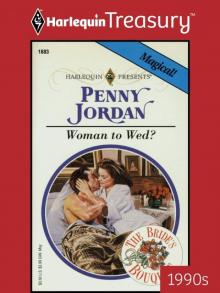 Woman To Wed?
Woman To Wed?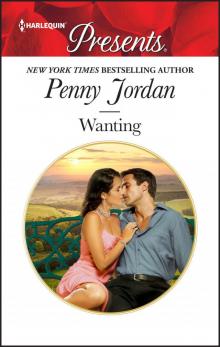 Wanting
Wanting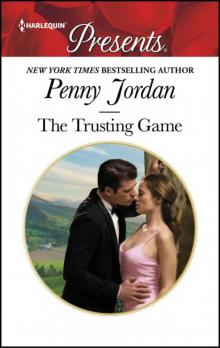 The Trusting Game (Presents Plus)
The Trusting Game (Presents Plus)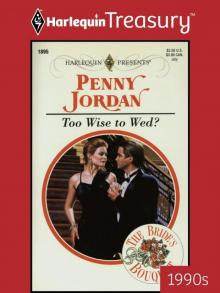 Too Wise To Wed?
Too Wise To Wed?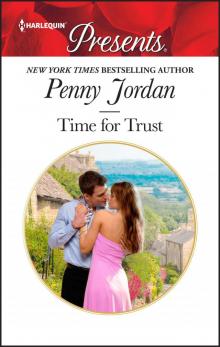 Time for Trust
Time for Trust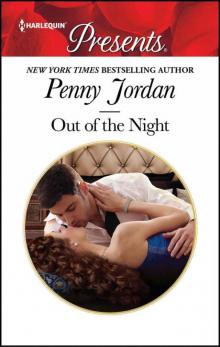 Out 0f The Night (HQR Presents)
Out 0f The Night (HQR Presents)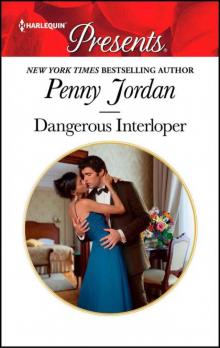 Dangerous Interloper (Lessons Learned II Book 8; HQR Presents Classic)
Dangerous Interloper (Lessons Learned II Book 8; HQR Presents Classic)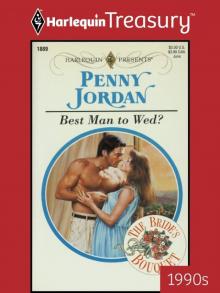 Best Man To Wed?
Best Man To Wed?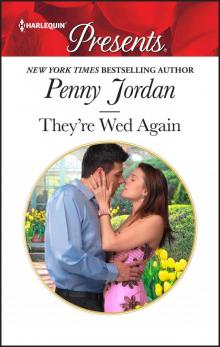 They're Wed Again
They're Wed Again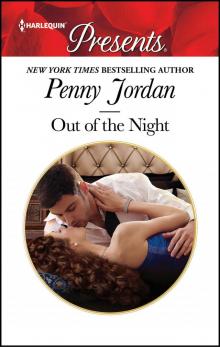 Out of the Night
Out of the Night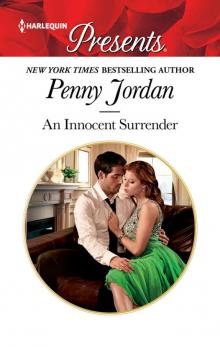 An Innocent's Surrender
An Innocent's Surrender Marriage: To Claim His Twins
Marriage: To Claim His Twins Deal With the Devil--3 Book Box Set
Deal With the Devil--3 Book Box Set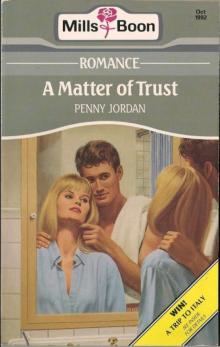 Matter of Trust
Matter of Trust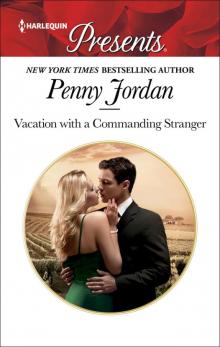 Vacation with a Commanding Stranger
Vacation with a Commanding Stranger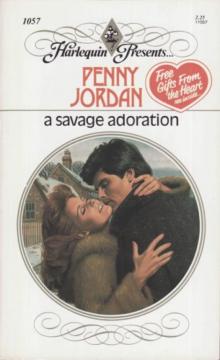 A Savage Adoration
A Savage Adoration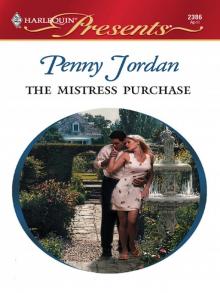 The Mistress Purchase
The Mistress Purchase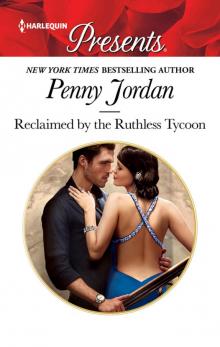 Reclaimed by the Ruthless Tycoon
Reclaimed by the Ruthless Tycoon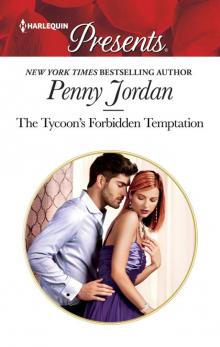 The Tycoon's Forbidden Temptation
The Tycoon's Forbidden Temptation Sinful Nights: The Six-Month MarriageInjured InnocentLoving
Sinful Nights: The Six-Month MarriageInjured InnocentLoving Bedding His Virgin Mistress
Bedding His Virgin Mistress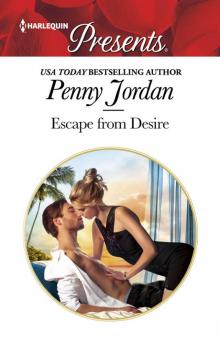 Escape from Desire
Escape from Desire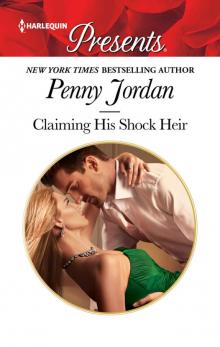 Claiming His Shock Heir
Claiming His Shock Heir Stronger than Yearning
Stronger than Yearning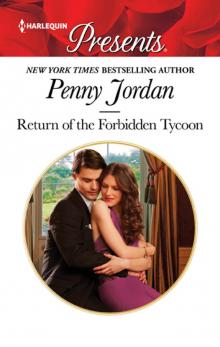 Return of the Forbidden Tycoon
Return of the Forbidden Tycoon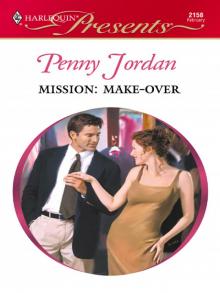 Mission: Make-Over
Mission: Make-Over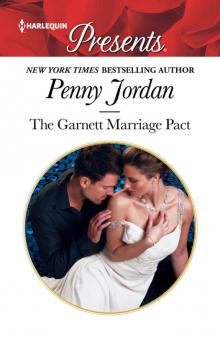 The Garnett Marriage Pact
The Garnett Marriage Pact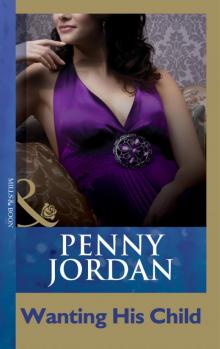 Wanting His Child
Wanting His Child A Little Seduction Omnibus
A Little Seduction Omnibus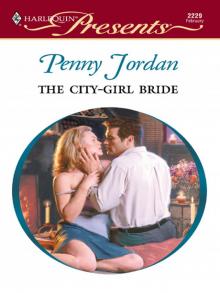 The City-Girl Bride
The City-Girl Bride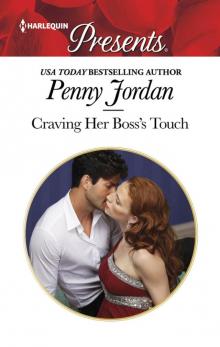 Craving Her Boss's Touch
Craving Her Boss's Touch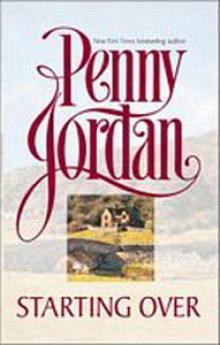 Starting Over
Starting Over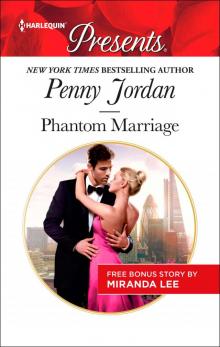 Phantom Marriage
Phantom Marriage The Italian Duke's Virgin Mistress
The Italian Duke's Virgin Mistress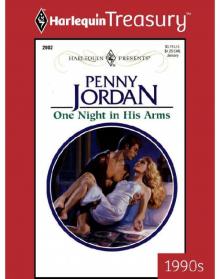 One Night in His Arms
One Night in His Arms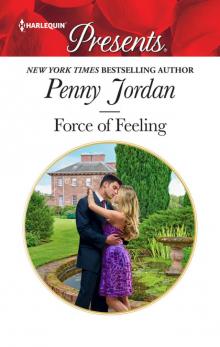 Force of Feeling
Force of Feeling Forbidden Loving
Forbidden Loving For Better for Worse
For Better for Worse Silver
Silver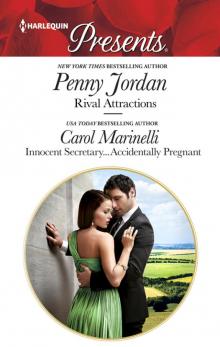 Rival Attractions & Innocent Secretary...Accidentally Pregnant
Rival Attractions & Innocent Secretary...Accidentally Pregnant A Bride for His Majesty s Pleasure
A Bride for His Majesty s Pleasure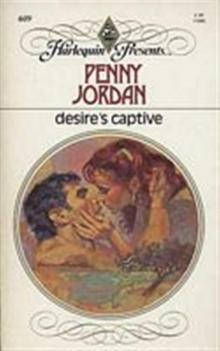 Desire's Captive
Desire's Captive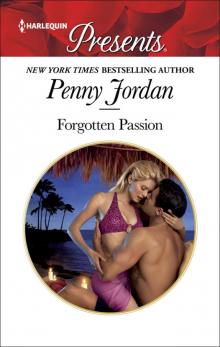 Forgotten Passion
Forgotten Passion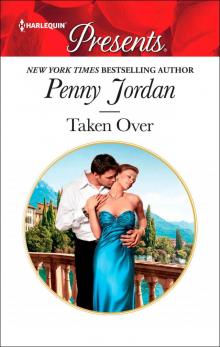 Taken Over
Taken Over Taken by the Sheikh
Taken by the Sheikh Sicilian Nights Omnibus
Sicilian Nights Omnibus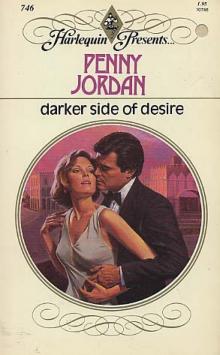 Darker Side Of Desire
Darker Side Of Desire A Royal Bride at the Sheikh s Command
A Royal Bride at the Sheikh s Command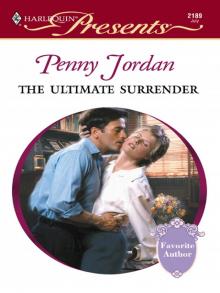 The Ultimate Surrender
The Ultimate Surrender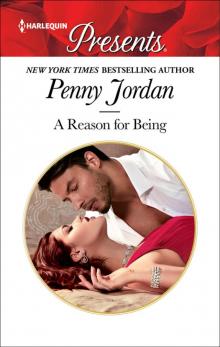 A Reason for Being
A Reason for Being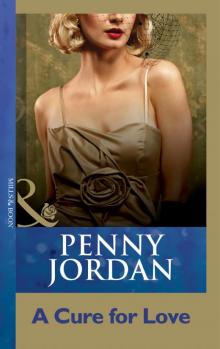 A Cure for Love
A Cure for Love Bought with His Name & the Sicilian's Bought Bride
Bought with His Name & the Sicilian's Bought Bride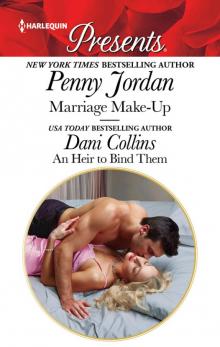 Marriage Make-Up & an Heir to Bind Them
Marriage Make-Up & an Heir to Bind Them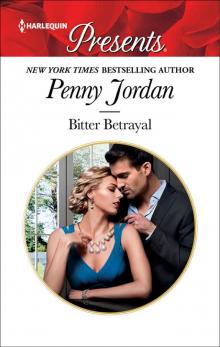 Bitter Betrayal
Bitter Betrayal Captive At The Sicilian Billionaire’s Command
Captive At The Sicilian Billionaire’s Command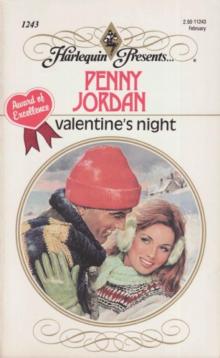 Valentine's Night
Valentine's Night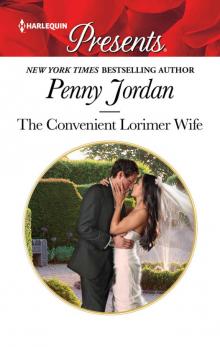 The Convenient Lorimer Wife
The Convenient Lorimer Wife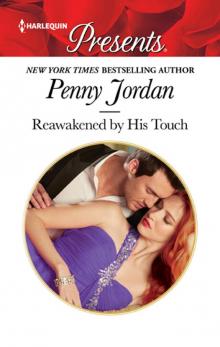 Reawakened by His Touch
Reawakened by His Touch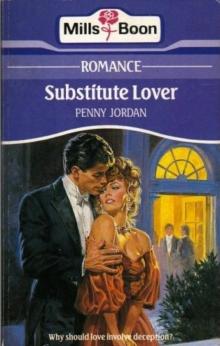 Substitute Lover
Substitute Lover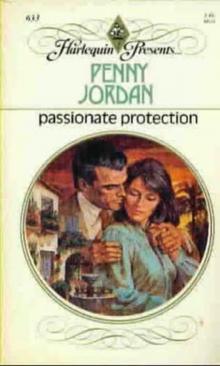 Passionate Protection
Passionate Protection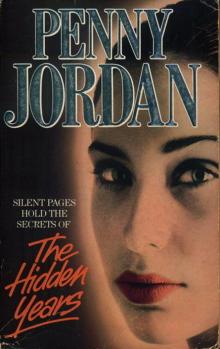 The Hidden Years
The Hidden Years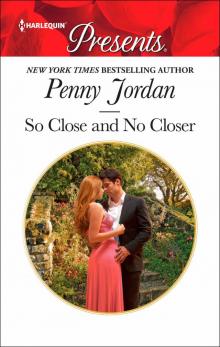 So Close and No Closer
So Close and No Closer Passion and the Prince
Passion and the Prince Virgin for the Billionaire's Taking
Virgin for the Billionaire's Taking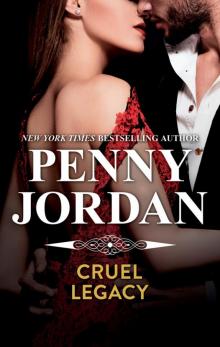 Cruel Legacy
Cruel Legacy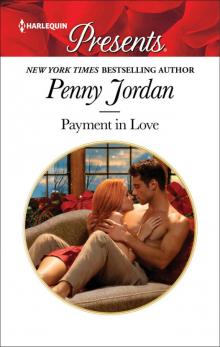 Payment in Love
Payment in Love The Wealthy Greek's Contract Wife
The Wealthy Greek's Contract Wife Penny Jordan Collection: Just One Night
Penny Jordan Collection: Just One Night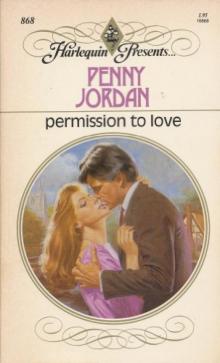 Permission to Love
Permission to Love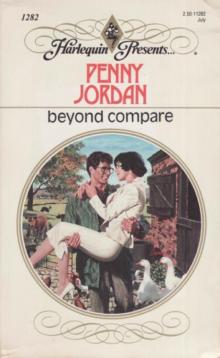 Beyond Compare
Beyond Compare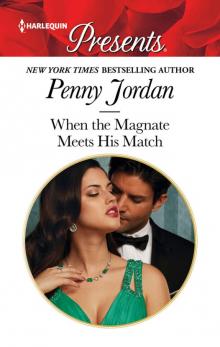 When the Magnate Meets His Match
When the Magnate Meets His Match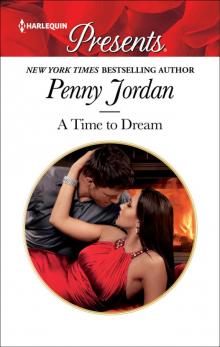 A Time to Dream
A Time to Dream Christmas Nights
Christmas Nights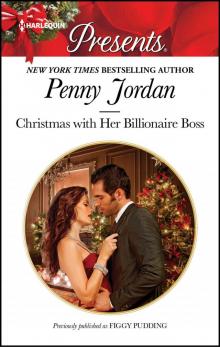 Christmas with Her Billionaire Boss
Christmas with Her Billionaire Boss The Sheikh's Baby Omnibus
The Sheikh's Baby Omnibus The Tycoon's Virgin
The Tycoon's Virgin Falcon's Prey
Falcon's Prey Mistress Of Convenience
Mistress Of Convenience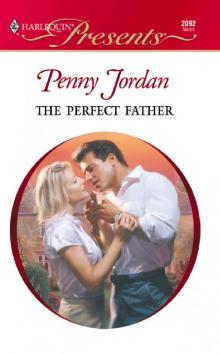 The Perfect Father
The Perfect Father Stranger from the Past & Proof of Their Sin
Stranger from the Past & Proof of Their Sin A Little Revenge Omnibus
A Little Revenge Omnibus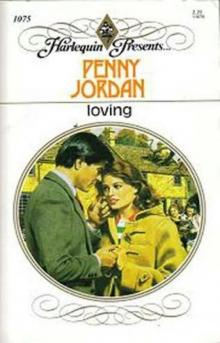 Loving
Loving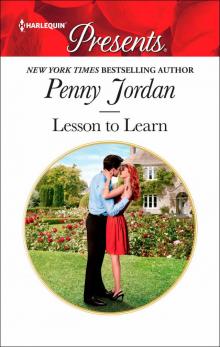 Lesson to Learn
Lesson to Learn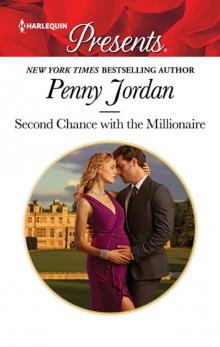 Second Chance with the Millionaire
Second Chance with the Millionaire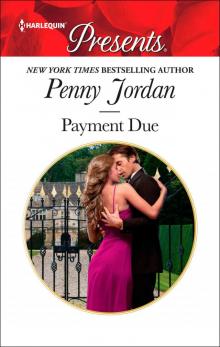 Payment Due
Payment Due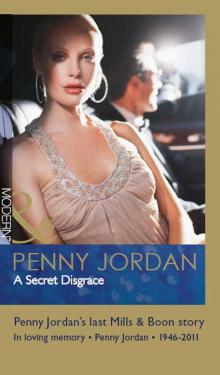 A Secret Disgrace
A Secret Disgrace Conveniently His Omnibus
Conveniently His Omnibus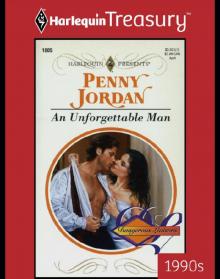 An Unforgettable Man
An Unforgettable Man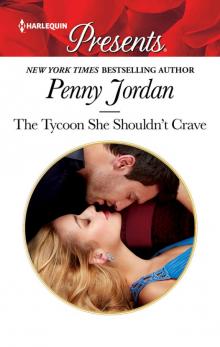 The Tycoon She Shouldn't Crave
The Tycoon She Shouldn't Crave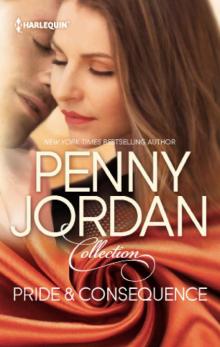 Pride & Consequence Omnibus
Pride & Consequence Omnibus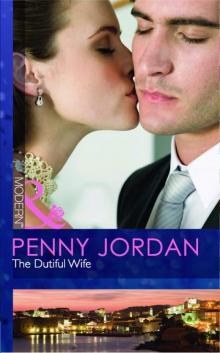 The Dutiful Wife
The Dutiful Wife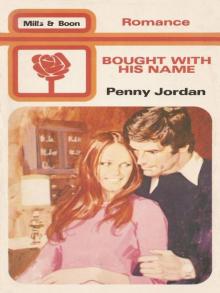 Bought With His Name
Bought With His Name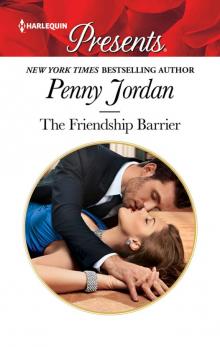 The Friendship Barrier
The Friendship Barrier High Society
High Society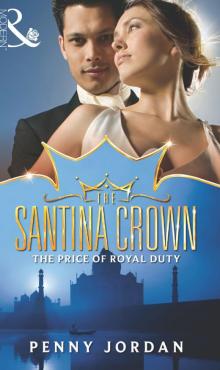 The Price of Royal Duty
The Price of Royal Duty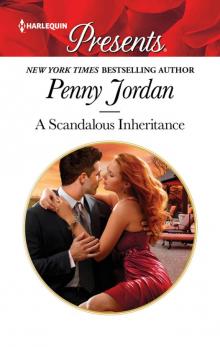 A Scandalous Inheritance
A Scandalous Inheritance At His Convenience Bundle
At His Convenience Bundle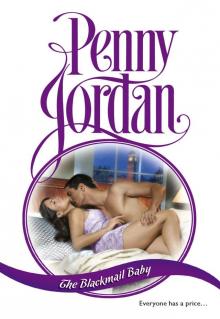 The Blackmail Baby
The Blackmail Baby Prince of the Desert
Prince of the Desert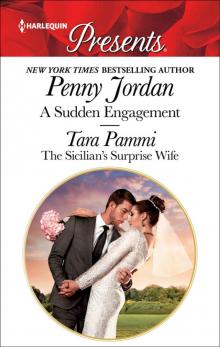 A Sudden Engagement & the Sicilian's Surprise Wife
A Sudden Engagement & the Sicilian's Surprise Wife Unexpected Pleasures
Unexpected Pleasures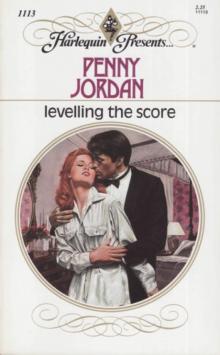 Levelling the Score
Levelling the Score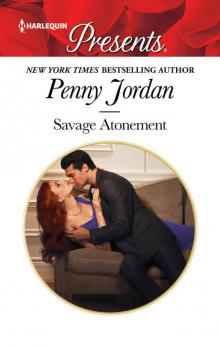 Savage Atonement
Savage Atonement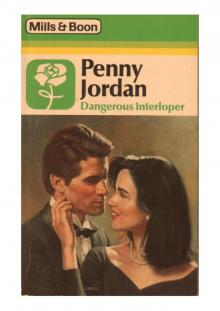 Dangerous Interloper
Dangerous Interloper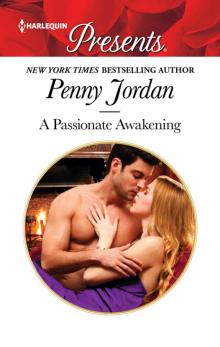 A Passionate Awakening
A Passionate Awakening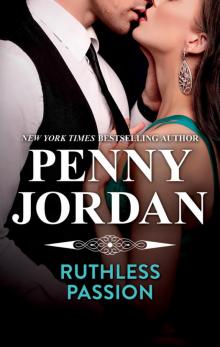 Ruthless Passion
Ruthless Passion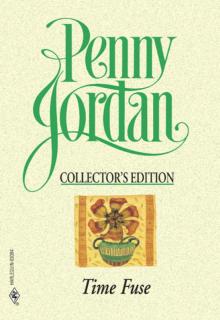 Time Fuse
Time Fuse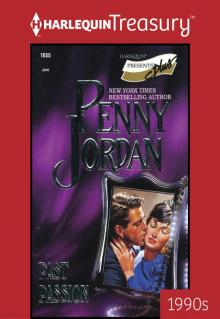 Past Passion
Past Passion Her One and Only
Her One and Only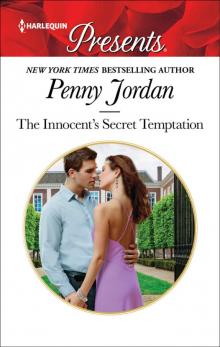 The Innocent's Secret Temptation
The Innocent's Secret Temptation A Stormy Spanish Summer
A Stormy Spanish Summer The Marriage Demand
The Marriage Demand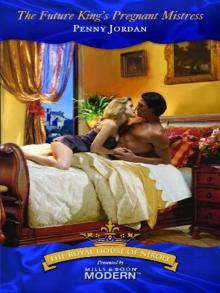 Future King's Pregnant Mistress
Future King's Pregnant Mistress Unwanted Wedding
Unwanted Wedding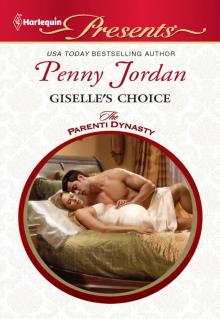 Giselle's Choice
Giselle's Choice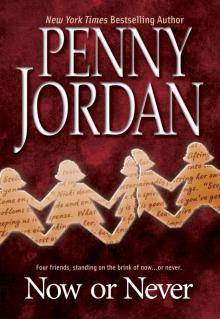 Now or Never
Now or Never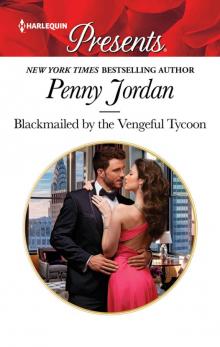 Blackmailed by the Vengeful Tycoon
Blackmailed by the Vengeful Tycoon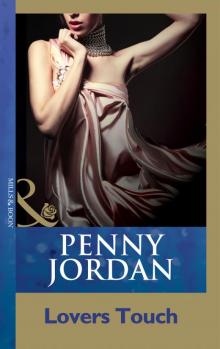 Lovers Touch
Lovers Touch Scandalous Seductions
Scandalous Seductions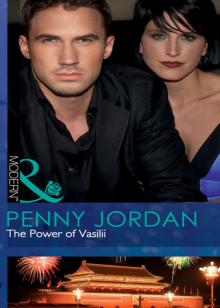 The Power of Vasilii
The Power of Vasilii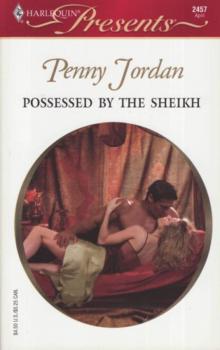 Possessed by the Sheikh
Possessed by the Sheikh It Happened At Christmas (Anthology)
It Happened At Christmas (Anthology) The Perfect Lover
The Perfect Lover The Flawed Marriage
The Flawed Marriage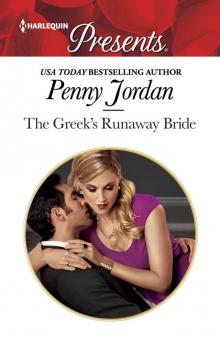 The Greek's Runaway Bride
The Greek's Runaway Bride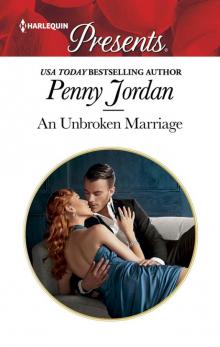 An Unbroken Marriage
An Unbroken Marriage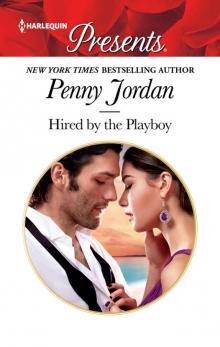 Hired by the Playboy
Hired by the Playboy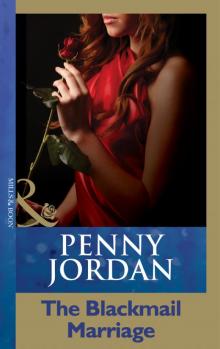 The Blackmail Marriage
The Blackmail Marriage Daughter of Hassan
Daughter of Hassan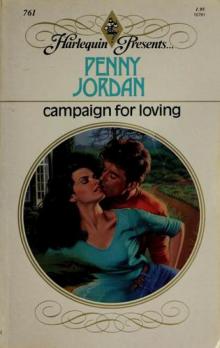 Campaign For Loving
Campaign For Loving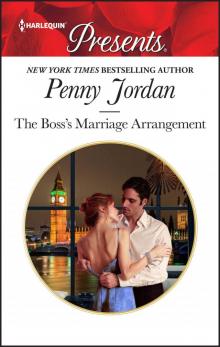 The Boss's Marriage Arrangement
The Boss's Marriage Arrangement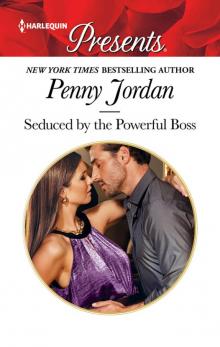 Seduced by the Powerful Boss
Seduced by the Powerful Boss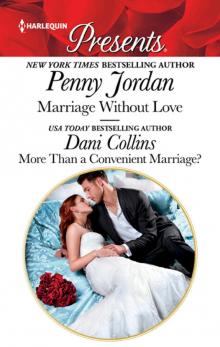 Marriage Without Love & More Than a Convenient Marriage?
Marriage Without Love & More Than a Convenient Marriage?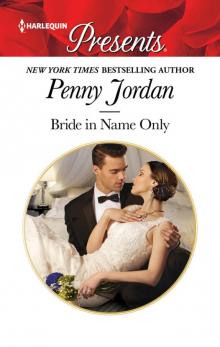 Bride in Name Only
Bride in Name Only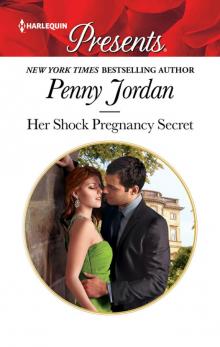 Her Shock Pregnancy Secret
Her Shock Pregnancy Secret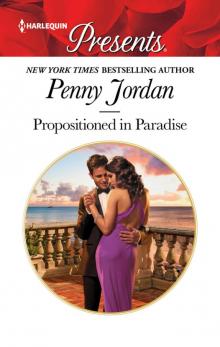 Propositioned in Paradise
Propositioned in Paradise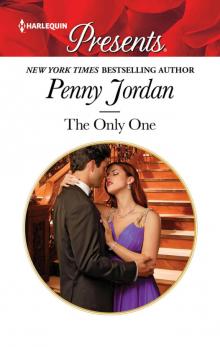 The Only One
The Only One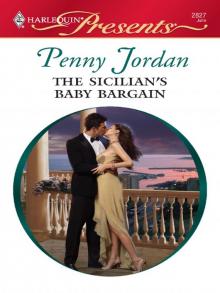 The Sicilian s Baby Bargain
The Sicilian s Baby Bargain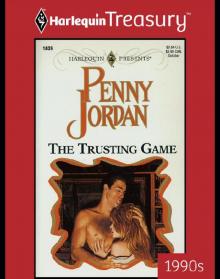 The Trusting Game
The Trusting Game The Most Coveted Prize
The Most Coveted Prize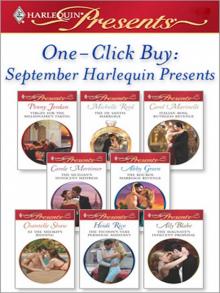 One-Click Buy: September Harlequin Presents
One-Click Buy: September Harlequin Presents In Her Enemy's Bed
In Her Enemy's Bed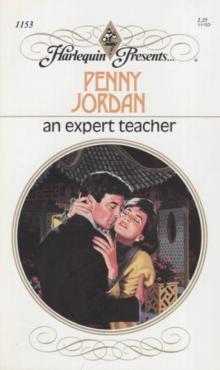 An Expert Teacher
An Expert Teacher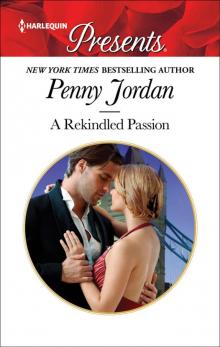 A Rekindled Passion
A Rekindled Passion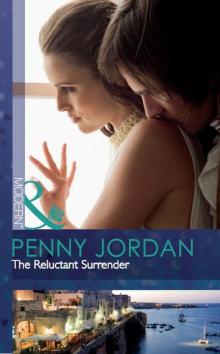 The Reluctant Surrender
The Reluctant Surrender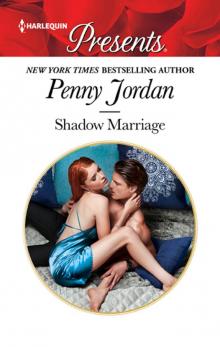 Shadow Marriage
Shadow Marriage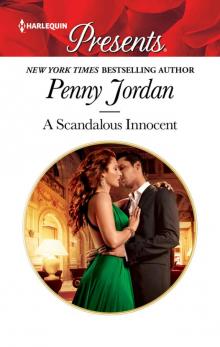 A Scandalous Innocent
A Scandalous Innocent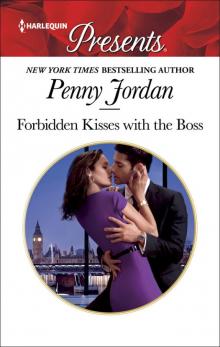 Forbidden Kisses with the Boss
Forbidden Kisses with the Boss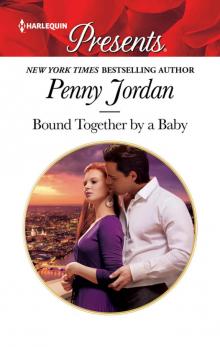 Bound Together by a Baby
Bound Together by a Baby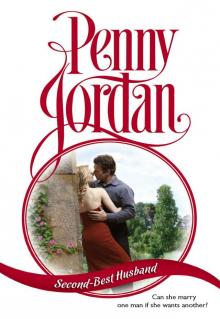 Second-Best Husband
Second-Best Husband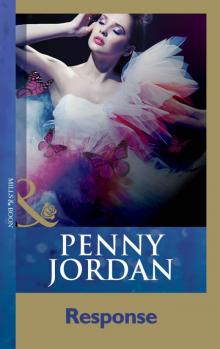 Response
Response His Untouched Bride
His Untouched Bride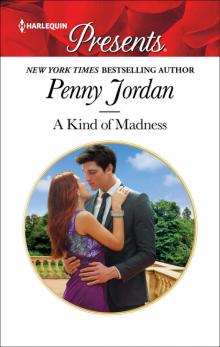 A Kind of Madness
A Kind of Madness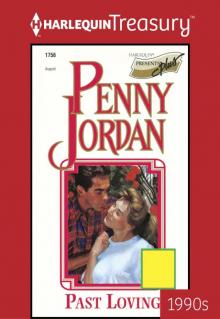 Past Loving
Past Loving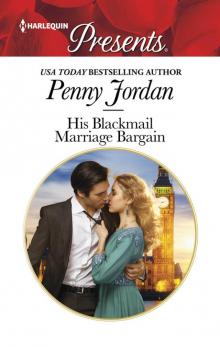 His Blackmail Marriage Bargain
His Blackmail Marriage Bargain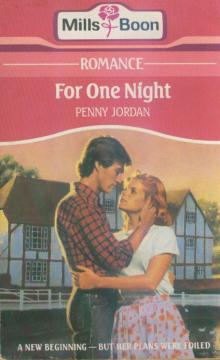 For One Night
For One Night Legally His Omnibus
Legally His Omnibus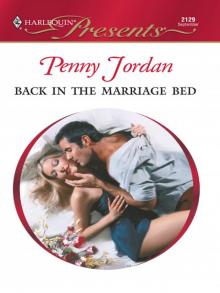 Back in the Marriage Bed
Back in the Marriage Bed Man-Hater
Man-Hater